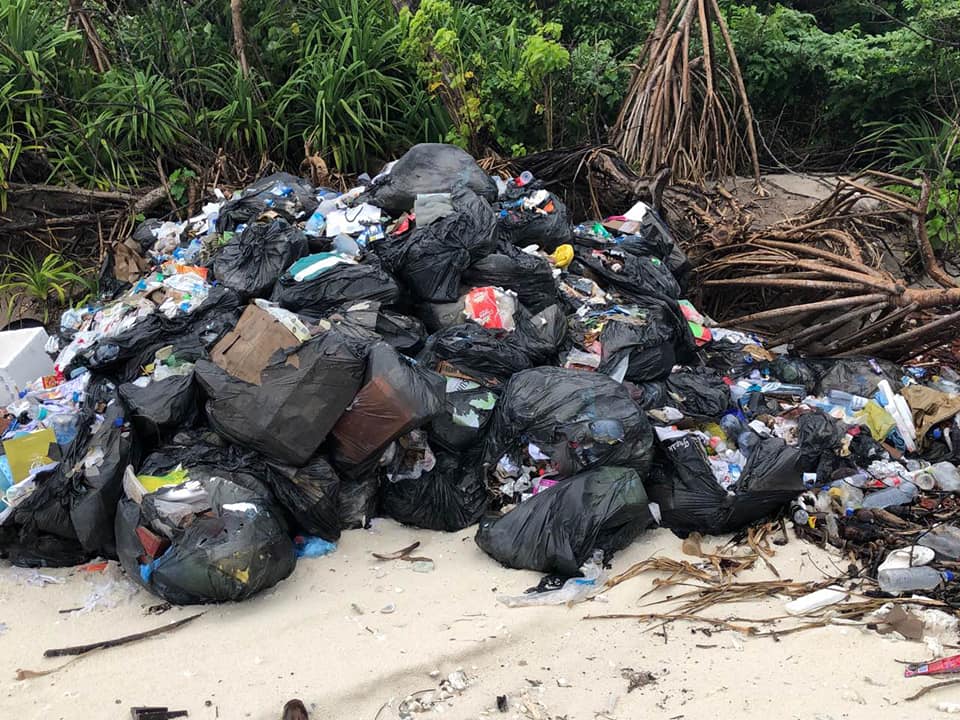Resorts warned about illegal dumping of rubbish
A resort was accused of dumping garbage on an uninhabited island.

11 Jun 2019, 09:00
Hassan Mohamed
The tourism ministry has vowed to take action against tourist resorts that violate environmental regulations after it was reported that Dhigufaru Island Resort has been dumping rubbish on a nearby uninhabited island.
Photos published on Facebook show dozens of bags of domestic rubbish containing items such as plastic bottles, cups and food containers discarded haphazardly on a beach on Keyodhoo island, which is also under the Dhigufaru Resort management. The name of the resort and its logo could be clearly seen on bags in the pictures.
However, Dhigufaru Resort claimed the rubbish had not been dumped but was simply awaiting collection, and that the photos reflected “an untrue negative image”.
“The pictures show the collected rubbish prepared for transport to the waste disposal site, scheduled for last week. It was delayed by a few days due to adverse weather conditions,” a post on the resort’s Facebook page said.
Become a member
Get full access to our archive and personalise your experience.
Already a member?
Discussion
No comments yet. Be the first to share your thoughts!
No comments yet. Be the first to join the conversation!
Join the Conversation
Sign in to share your thoughts under an alias and take part in the discussion. Independent journalism thrives on open, respectful debate — your voice matters.




